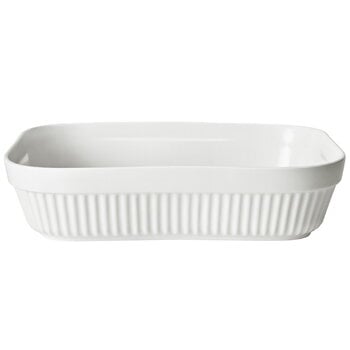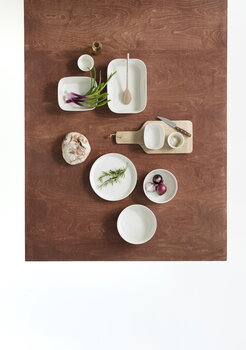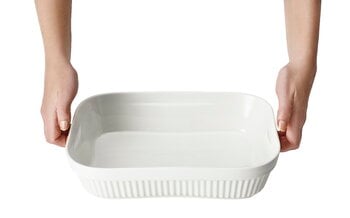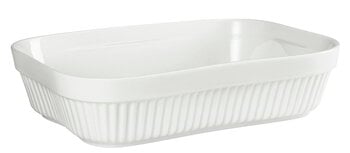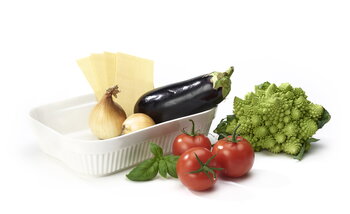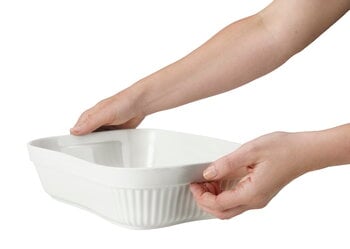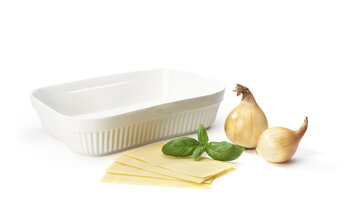The Uunikokki lasagne dish by Arabia is a convenient casserole for lasagnas, moussakas and other oven bakes.
Designed by Tapio Yli-Viikari in the late 1970s, the Uunikokki series is an icon of Finnish ceramic design. Made of durable vitro porcelain suitable for high temperatures, the Uunikokki range is characterized by a clean, functional appearance and wavy surface. Thanks to their refined aesthetics, the Uunikokki dishes are excellent for both preparing and serving food.

